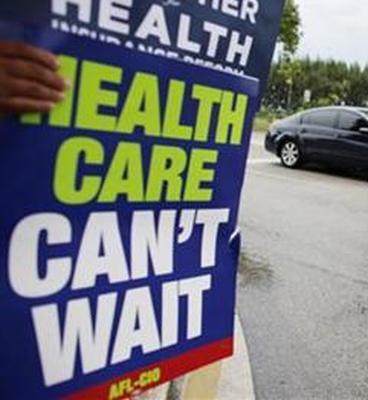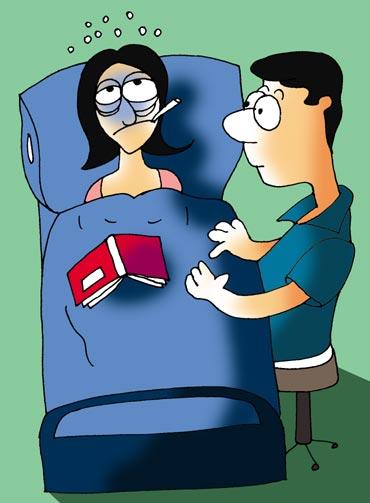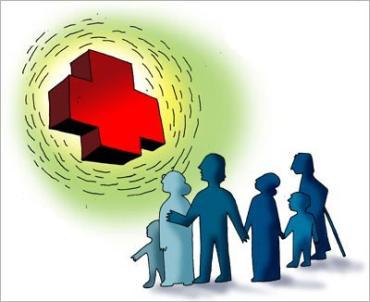Photographs: Reuters Neha Pandey Deoras in New Delhi
The first question to ask before buying any insurance policy is: Do I need it?
A critical illness policy would fail that test simply because a combination of life and medical covers should be enough cover.
However, it might pass another test -- loss of income due to a serious illness.
No wonder, Shriraj Deshpande, head -- health insurance at Future Generali General Insurance advocates buying a critical illness cover.
"An earning member who is above the age of 35 and has a high income must have a critical illness plan," he says.
A critical illness policy, offered by life and general insurance companies, pays a lumpsum amount if one is diagnosed with a serious illness.
. . .
Why critical illness policies are vital
Photographs: Jacky Naegelen/Reuters
The diseases covered include cancer, first heart attack, kidney failure, major organ transplant, multiple sclerosis, paralysis, coronary artery bypass surgery, primary pulmonary arterial hypertension and aorta graft surgery.
Given that the diseases covered are serious, it is important to have a high sum assured as well, at least Rs 10 lakh (Rs 1 million).
It will help for both medical treatment cover and loss of pay. Smaller covers, of say, Rs 200,000-300,000 are best linked to a loan.
. . .
Why critical illness policies are vital
Photographs: Uttam Ghosh/rediff.com
Consequently, the premiums are higher.
"Critical illness plans are expensive, compared to a standalone health insurance cover," says Arvind Laddha of Vantage Insurance Brokers.
Whereas a Rs 400,000- health cover for a 30-year old could cost Rs 3,500-4,500, a critical illness cover of Rs 300,000 will cost an average of Rs 4,500 and Rs 6,800 for a Rs 500,000-cover.
Importantly, one should not only rely on a critical illness plan.
. . .
Why critical illness policies are vital
Photographs: Reuters
There should be a health insurance policy and this could be added.
Insurers say nine or 10 diseases are covered, on an average, by a critical illness plan.
Max Bupa cover 20 diseases.
Critical illness plans cover paralysis and stroke, conditions which need not necessarily need hospitalisation and are not covered under many good health plans.
Sanjay Datta, head -- healthcare at ICICI Lombard, feels if a family is covered under a comprehensive health insurance cover, then critical illness is not absolutely necessary.
. . .
Why critical illness policies are vital
"Say, a child is diagnosed with critical illness.
Then, the critical illness covers bigger role (as substitute for loss of pay) is of little use.
The medical treatment can also be covered under the comprehensive health plan," he says.
There are some issues with those policies as well.
The exclusions are strict, and the amount will only be paid if the parameter under it is met.
Also, if one takes a rider on a term plan, once a claim is made, the base policy is terminated.
And, if the insured expires in 30-90 days of making a claim under the rider, the sum paid under the rider will be deducted from the death benefit.
But if you can afford it and don't have a significant financial corpus to meet expenses for illnesses, they are a good option.







article